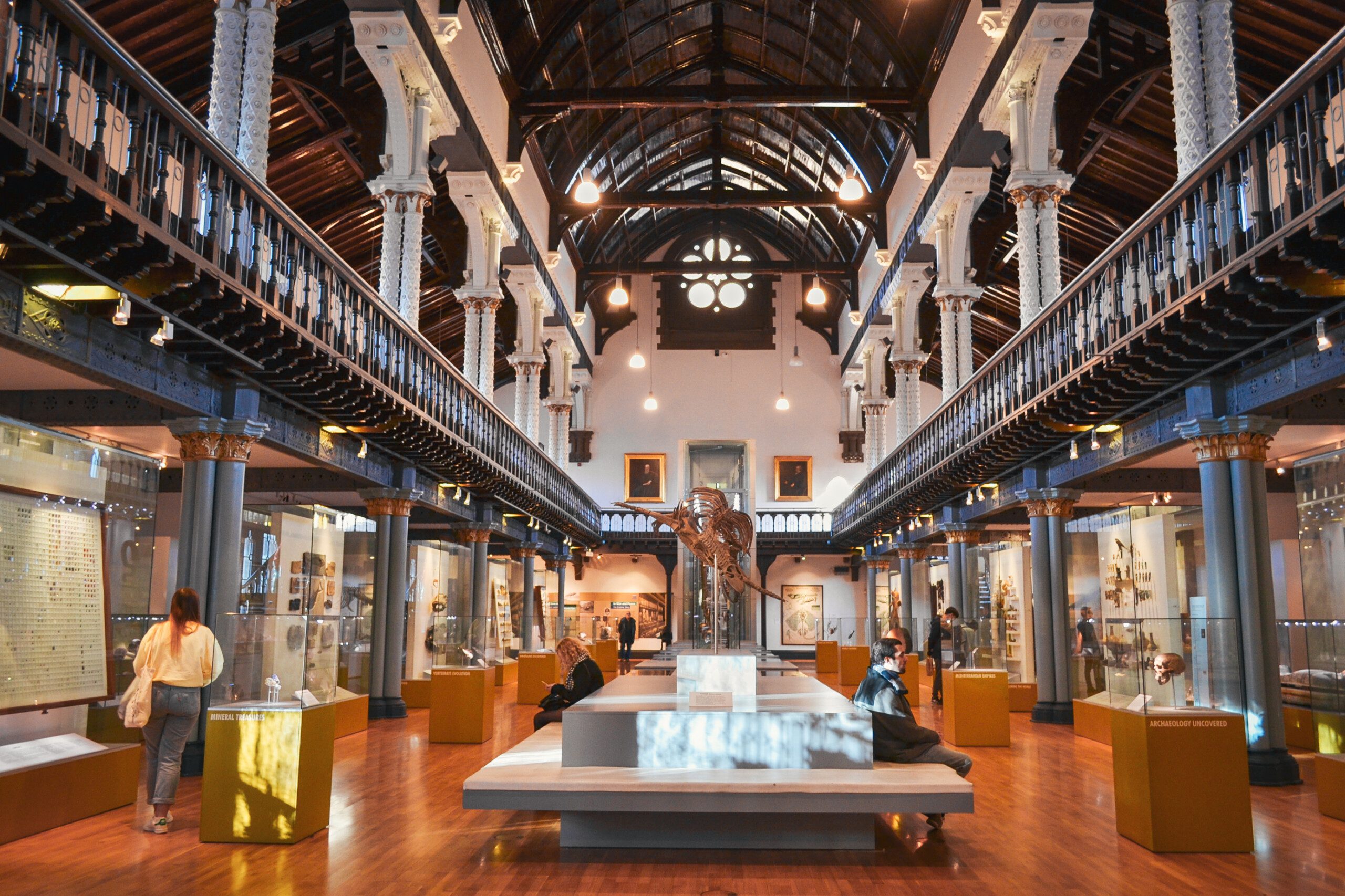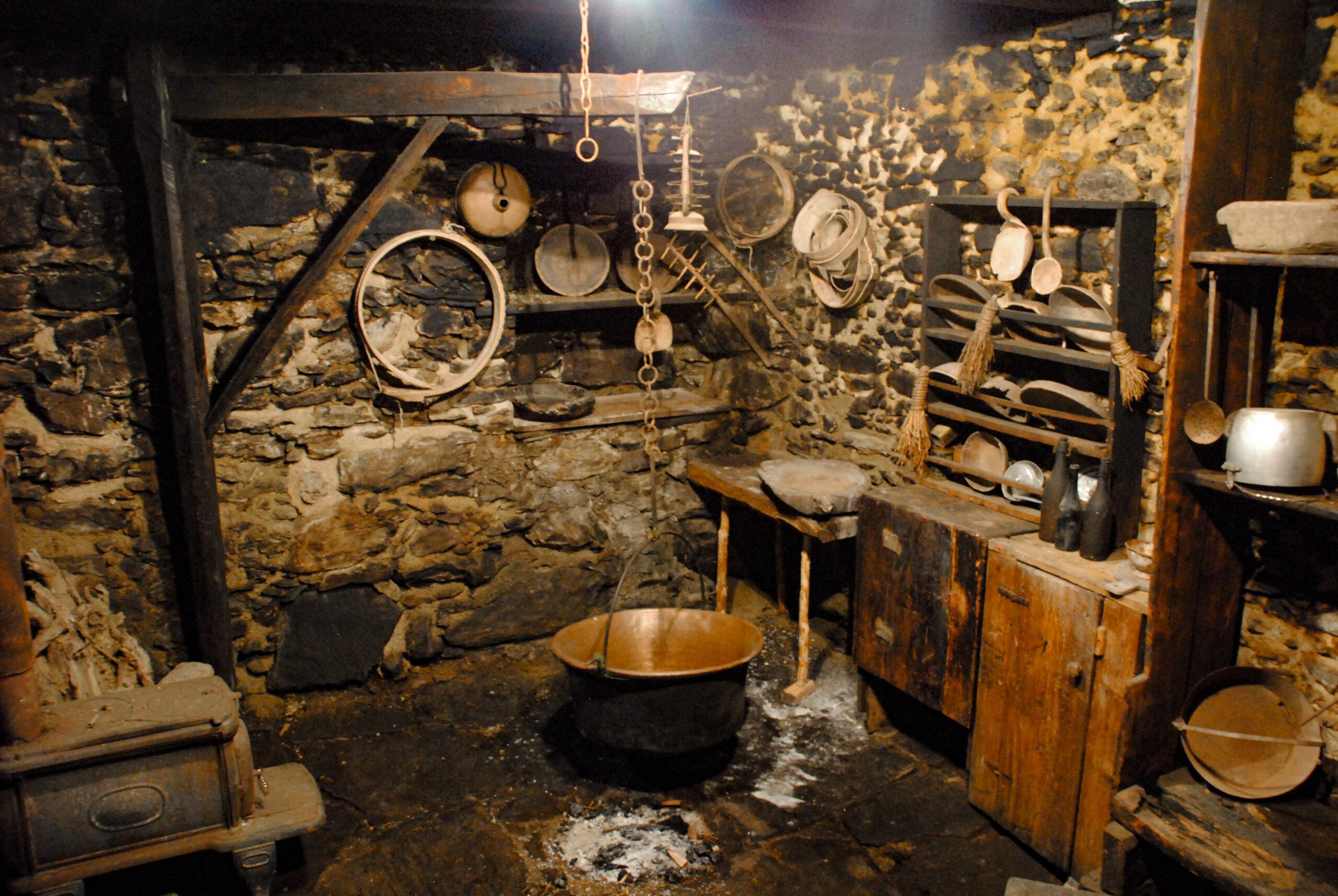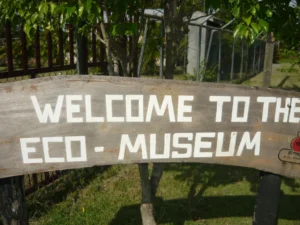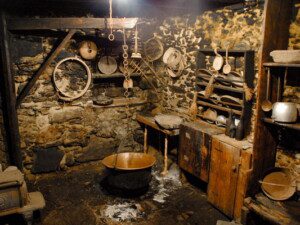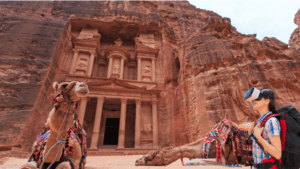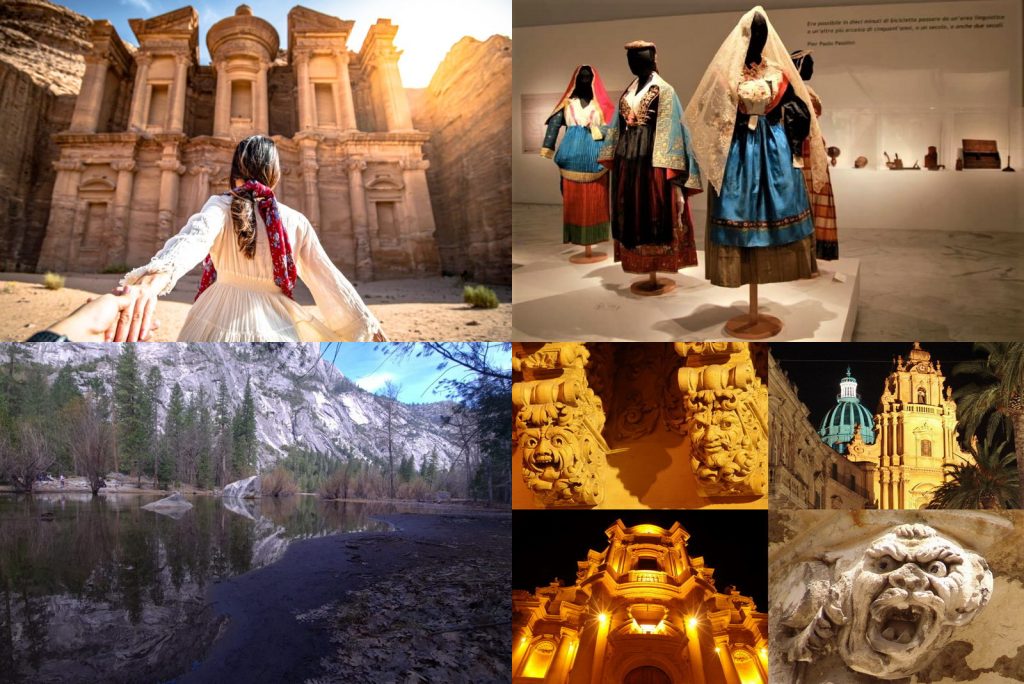Cycling Touring Guide (PTU13/P3)

Diagram: SP/TAH-CF/PTU13/P3 (Beta Version)
Reference scheme developed in accordance with the standard: SP/TAH-CF: Professional Standard (SP) 3.0 based on the professional skills indicated in the Framework of Competences of Tourism, Arts and Cultural Heritage. The scheme is created in accordance with the European Qualification Framework (EQF), Recommendations 2009/C 155/02 (European Credit System for Vocational Education and Training - ECVET) and the model called "Skills Cycle".
The scheme is subjected to a public inquiry available to all stakeholders in the cultural tourism supply chain in order to collect comments and contributions useful for improving its contents. All interested parties are invited to improve the scheme by sending their contributions to info@aiptoc.it
1. Title and Description
PTU13/P3: Cycling Touring Guide (V Level EQF)
The Cycle Tourist Hiking Guide is a professional figure, with a high intellectual content, capable of accompanying individuals or groups on cycle tourism routes, illustrating, in general terms, the naturalistic, environmental, anthropological and cultural aspects of the territory.
The Cycle Touring Hiking Guide is essentially a hiking guide specialized in cycle tourism who has specific skills to carry out activities of:
- Planning, organisation, communication, implementation and improvement relating to excursion offers associated with cycle tourism itineraries in relation to the characteristics of the users and the different types of terrain
- Functional cycling technical assistance for the correct execution of the excursion
- Support for any teaching activities of: environmental education and sustainable tourism.
The Cycling Tourist Hiking Guide has a profound knowledge of his territory with particular reference to the natural, environmental, cultural and food and wine aspects in order to identify and prepare itineraries of cycling tourism interest, organizing and carrying out excursions in maximum safety and with protections suitable for the type of excursion and adequate equipment for hikers.
The Cycle Tourist Hiking Guide manages to reconcile knowledge of the Cultural Heritage of its territory with cycle tourism routes also in order to deepen the knowledge of elements of local identity not only from a cycle tourism point of view but also anthropic, historical and cultural one.
The Cycling Tourist Guide can carry out the activities both on his own (self-employed) and for other interested parties as an Expert/Consultant
2. Standards of Reference
- European Qualification Framework (EQF)
- Recommendation 2009 / C 155/02 (European Credit System for Vocational Education and Training - ECVET)
- Law 4/2013 relating to non-regulated professions
3. Terms and Definitions
For this point, please refer to the next version of the scheme
4. Specific tasks and activities
In order to take into account, in the assignment of tasks, the following distinction was made:
- Fundamental tasks: indispensable tasks for the professional figure
- Optional tasks: additional tasks to the fundamentals which are at the discretion of the individual Cycling Touring Guide
The individual tasks can possibly be described by a set of specific activities associated with them.
The specific tasks and activities are listed below, associating, for each specific task or activity, the requirements of knowledge, skills and competences. Finally, a summary correlation matrix will be indicated in order to provide a synthetic and overall representation of the above.
Fundamental tasks and specific activities
- T1: Assess user needs and expectations for the reference sector (demand)
- T2: Identify the purpose, objectives and type of offer (e.g. classic cycling routes, educational routes, cultural thematic routes, cultural thematic routes, etc.)
- T3: Analyze the Reference Context
- 1 Identify and analyze the sector legislation
- 2 Identify and analyze the stakeholders (who are the interested parties: internal / external)
- 3 Identify and Analyze the attractions (Natural, Environmental, Cultural and Food and Wine Heritage)
- T4: Planning the excursion offer
- T5: Communicate the excursion offer
- T6: Create the excursion offer
- 1: Plan activities from a qualitative, operational and risk prevention point of view
- 2: Define internal procedures and regulations
- 3: Manage economic resources (budget)
- 4: Manage human resources (staff)
- 5: Safely guide the group along the pre-established itinerary
- 6: Ensure the correct execution of excursions
- 7: Support any Environmental Education and Sustainable Tourism activities
- 8: Verify and monitor compliance with the applicable legislation in force
- 9: Monitor service quality
- 10: Provide functional cycling technical assistance for the correct execution of the excursion
- T7: Improve the offering (continuous improvement)
Optional tasks
- T8: Carry out first aid yourself in the event of accidents or illness
- T9: Interfacing in a foreign language according to the territorial target of reference of its customers
Note: The optional aspect T8 is linked to the presence, in the team of excursion leaders, of a figure in possession of the skills to carry out first aid interventions in the event of accidents or illness (skills demonstrated by possession of the certificate issued following the attendance of a BLS first aid course provided by authorized bodies). If the Naturalistic Guide is the only member of the accompanying team, task T8 becomes mandatory.
The competence of the T9 task can also be made available by other members of the accompanying team if required by the user.
5. Skills, Knowledge and Autonomy and Responsibility
The specific tasks and activities are listed below, associating, for each specific task or activity, the requirements of knowledge, skills and competences. Finally, a summary correlation matrix will be indicated in order to provide a synthetic and overall representation of the above.
Task T1: Assess the needs and expectations of users for the reference sector (demand)
Expertise
- CTS7: Using the tools of Territorial Tourism Marketing
- CTS9: Perform Needs Analysis
- CTQ1-1 Identify and analyze the needs, even implicit, of customers
Ability
- SQ1: Analysis skills
- SQ2: Ability to synthesize
- SQ10: Analyzing the explicit, implicit and binding requirements of users
- SP15: Analyze industry demand
Additional required knowledge:
- KQ2: Quality Management - Factors, indicators and standards of quality in services
- KQ22: Quality Management - Factors (dimensions) and quality indicators
- KS4: Sustainable Tourism
- KS6: Nature Tourism
- KS29: Tourism Marketing
- KQ33: Quality Management - Stakeholder Requirements Analysis
- KS271: Bicycle touring
Task T2: Identify the purpose, objectives and type of the offer
Expertise
- CTS114: Identify aims and objectives of the offer
Ability
- SP71: Identify and classify the various types of excursions
Additional required knowledge:
- KS190: Naturalist-environmental itineraries (classification and basic concepts)
- KS191: Characteristics of the excursions
- KS272: Cycle touring routes (classification and basic concepts)
- KS273: «Bicitalia» national cycle network
- KS274: The Eurovelo cycle network
Task T3: Analyze the Reference Context
Activity: T3.1 Identify and analyze sector regulations
Expertise
- CTS1: Identify and analyze the applicable rules for the protection and use of the Cultural Heritage
- CTS2: Identify and analyze the applicable privacy legislation
- CTS3: Identify and analyze applicable safety regulations
- CTS5: Identify and analyze the applicable tourism legislation
- CTS123: Identify and analyze legislation relating to permits and authorizations for excursions
Ability
- SQ1: Analysis skills
- SP1: Identify and evaluate the applicability of the rules for the protection and use of the Cultural and Landscape Heritage
- SP2: Identify and evaluate the applicability of the legislation on safety in the workplace with relevance to its reference sector
- SP4: Identify and evaluate the applicability of the Tourism Legislation
Additional required knowledge:
- KS39: The legislation for the protection and use of Cultural Heritage
- KS40: The criteria for the protection of cultural heritage
- KS41: The various levels of protection
- KS43: Landscape assets
- KS47: The legislation on privacy and the tourism sector
- KS48: The European Regulation 2016/679
- KS49: The legislation on safety in the workplace in the tourism sector
- KS52: Consumer protection legislation
- KT22: Law on civil and criminal liability
- KS106: Tourism Legislation
- KS275: The road regulation applicable to cycle tourism
Activity: T3.2 Identify and analyze the stakeholders (who are the interested parties: internal / external)
Expertise
- CTS13 Analyze strategic stakeholders
Ability
- SQ1: Analysis skills
- SP24: Identify the Strategic Stakeholders
Additional required knowledge:
- KS27: Local tourism systems
- KS28: Institutions and tourism promotion
- KS24: Destination Management Organization (DMO)
- KS92: Supervisory and protection bodies
- KTN12: The environmental protection and surveillance bodies
Activity: T3.3 Identify and Analyze the attractions (Natural, Environmental, Cultural and Food and Wine Heritage)
Expertise
- CTB21: Identify natural endogenous attractions
- CTB22: Identify the endogenous cultural attractions that can be correlated with naturalistic and environmental routes, in order to deepen the knowledge of elements of local identity not only from a naturalistic but also anthropic, historical and cultural point of view.
- CTB20: Identify Induced Attractions
Note:
The attractions are in this context divided into:
- Endogenous attractions: natural attractions (mountains, lakes, beaches, rivers, climate, etc.) or cultural attractions (cuisine, crafts, language, habits and customs, monuments, historical facts, etc.)
- Induced attractions: tourist infrastructures, special events, recreational and sporting activities, etc.
Ability
- SQ1: Analysis skills
- SP30: Analyze and relate the Naturalistic Heritage
- SP72: Know and analyze the anthropic context of one's own territory
- SP74: Know and analyze the endogenous cultural attractions of one's own territory
- SP75: Know and analyze induced attractions
Additional required knowledge:
- KS3: Nature Tourism
- KTN: The Naturalistic Heritage
- KTI Intangible Heritage
- KTS Historical, Artistic and Archaeological Heritage
- KTE Food and Wine Heritage
- KS191: Anthropic geography
- KS194: Local cultural endogenous attractions
- KS196: Induced territorial attractions
Task T4: Design the offer
Identify and configure the cycling excursion and any additional support services to the basic offer (e.g. group entertainment, teaching, accommodation, refreshments, supply of support materials, educational and information booklets, etc.)
Expertise
- CTB23: Identify and know how to analyze the physical geographical context of the reference territory
- CTQ1-2 Design the processes and services necessary for the supply of the offer
- CTQ1-7 Apply Quality Factors, Indicators and Standards for hiking activities
- CTS14: Design the offer
- CTS124: Analyze supply support services
- CTT2: Use tools and methodologies for risk management
Ability
- SQ1: Analysis skills
- SQ11 Design processes and services
- SQ12: Implement, document and classify core processes
- SQ14: Propose process changes to facilitate and rationalize improvements
- SQ18: Identify, understand and evaluate quality factors, indicators and standards
- SP17: Contribute to the development of the offer
- SP76: Analyze the Physical Geographical Context of the Territory
- SP85: Analyze the Botanical, Zoological and Anthropic Context of the Territory
Additional required knowledge:
- KQ1: Quality Management - The UNI EN ISO 9001 standard
- KQ22: Quality Management - Factors (dimensions) and quality indicators
- KQ11: Quality Management - Design and development;
- KS197: Excursion planning
- KS191: Physical geography (knowledge and basic concepts)
- KS198: Support services to the basic offer
- KS99 Risk Management
- KS199: Organizational techniques and methodologies for hiking routes
- KS200: Theories and techniques for drafting an itinerary
- KS201: Cartography, Topography and orientation techniques
- KS202: Paths and Signage
- KS203: Hiking Theories and Techniques
- KS204:The objective risks of hiking and personal protection
- KS205: Elements of Meteorology and Climatology
- KS206: Competent services and authorities in the event of accidents or sudden illnesses
- KS208: Notions of Botany, Zoology and Anthropic Geography of the reference territory
- KT5: Basic IT and telematic tools
- KT16: Corporate Organizational Models
- KS254: Reference technical standards (UNI, EN, ISO, …)
- KS276: Evaluation and classification of cycle-excursion difficulties
- KS277: Calculation of travel times for cycle-excursion routes
- KS281: Touring bike: classification and choice
Task T5: Communicate the offer
Expertise
- CTT6: Apply IT tools for communication
- CTT7: Using Digital Marketing techniques and methodologies
Ability
- SP8: Develop a Communication Plan for the reference sector
- SP11: Identify the web technologies to be used for tourism marketing
- ST1: Ability to communicate
- ST6: Identify and apply IT tools for communication
Additional required knowledge:
- KQ34: Quality Management - Internal and external communication
- KS30: Tourism and Communication
- KS31: The Communication Plan
- KS32: Online Marketing and Promotion
- KS33: Web Marketing Techniques
- KS34: Social Marketing
- KS35: Online Travel Agencies (OTAs)
- KS100: Information technology for communication
Task T6: Make the offer
Activities: T6.1: Plan activities from a qualitative, operational and risk prevention point of view
Expertise
- CTQ1-3: Planning of processes and services
- CTS85: Planning the excursion offer
Ability
- SQ5: Ability to plan hiking itineraries based on the type of group receiving the service and the pre-established time
- SP40: Know how to verify the usability of the route
- SP81: Ability to identify equipment and equipment and evaluate their adequacy
Additional required knowledge:
- KQ7: Quality Management - Planning and monitoring of the service
- KQ8: Quality Management - The procurement system
- KS209: Hiking equipment and equipment (classification, management and maintenance)
Activity: T6.2: Define internal procedures and regulations
Expertise
- CTQ1-10 Production and management of documentation
- CTT5: Apply basic IT and telematic tools
- CTT9: Identify and evaluate the applicability of business organization techniques and methodologies
Ability
- SQ3: Organizational skills
- SQ13: Implementing Procedures and Operating Instructions for Quality
Additional required knowledge:
- KQ4: Quality Management - System Documentation; the Manual; Procedures and Operating Instructions;
- KS101: Basic IT and Telematics
Activity: T6.3: Manage economic resources (budget)
Expertise
- CTQ1-8 Purchasing Management
- CTT10: Basic Economic Management
- CCT22: Budget Analysis and Management
Ability
- ST9: Use corporate accounting and administration tools
Additional required knowledge:
- KQ8: Quality Management - The procurement system
- KS103: Business Administration
- KT9: Business administration and accounting tools
Activity: T6.4: Coordinate human resources (staff)
Expertise
- CTQ1-9 Personnel development
- CTS15: Identify any staff skills gap
- CTT3: Relationship and Conflict Management
- CTT4: Manages and coordinates the work group
- CCT24: Contractualization
Ability
- SQ9: Identify skills gaps for quality
- SP18: Identify skills and competences gaps for the reference sector
- ST2: Group management skills
- ST3: Conflict management skills
Additional required knowledge:
- KQ5: Quality Management - The management of human resources
- KS104: Communication and Conflict Management
- KS105: Communication styles and effective communication
- KT13: Contracts
T6.5: Safely guide the group along the pre-established itinerary
Expertise
- CTT3: Relationship and Conflict Management
- CCT21: Interpersonal Communication
- CTT2: Management of tools and methodologies for risk management
- CTT124: Hiking Safety Management
Ability
- ST1: Ability to communicate also in relation to the different characteristics, types and expectations of customers
- ST2: Ability to manage and lead the group even in the event of unexpected events
- ST3: Conflict management skills
- SP78: Ability to identify and manage the objective risks of hiking
- SP80: Ability to evaluate users' psychophysical abilities
- SP81: Ability to identify equipment and equipment and evaluate their adequacy
- SP83: Ability to recognize and manage risk depending on the type of customer depending on the context
- SP87: Ability to organize rescue with the competent and available services in the area
Additional required knowledge:
- KT1: Communication
- KT2: Group management techniques
- KT3: Conflict Management Techniques
- KT24: Elements of Leadership and Group Psychology
- KS99 Risk Management
- KS204: The objective risks of hiking and personal protection
- KS205: Elements of meteorology and climatology (aimed at understanding potentially dangerous situations and safety behaviours)
- KS206: Competent services and authorities in the event of accidents or sudden illnesses
- KS210: Elements of Ethology (Behavioral Biology)
- KS254: Reference technical standards (UNI, EN, ISO, …)
- KS278: Cycling Practice Techniques
- KS279: Bicycle touring management techniques
T6.6: Ensure the correct conduct of excursions
Expertise
- CTQ1-4 Provision of services
- CTQ1-12 User support
- CTQ2: Apply Quality Management methodologies to the processes associated with the excursion offer
- CTS83: Manages the excursion and any unexpected events
Ability
- SQ4: Ability to control
- SP37: Know how to plan and coordinate the maintenance of equipment and equipment
- SP77: Know how to use organizational techniques and methodologies for hiking routes
- SP79: Ability to use knowledge of cartography, topography and orientation
- ST21: Ability to respect deadlines and programmes
- SP82: Ability to rationally adapt and modify the route based on unexpected events
- SP86: Ability to relate and inform in relation to the context of the itineraries
Additional required knowledge:
- KQ6: Quality Management – Logistic resources: equipment and working environment
- KQ9: Quality Management - Production and provision of the service;
- KQ10: Quality Management - Identification and traceability;
- KS1: Logistics
- KS199: Organizational techniques and methodologies for hiking trails
- KS200: Theories and techniques for drafting an itinerary
- KS201: Cartography, Topography and orientation techniques
- KS202: Paths and Signage
- KS203: Hiking Theories and Techniques
- KS208: Notions of Botany, Zoology and Anthropic Geography of the reference territory
- KS210: Elements of Ethology (Behavioral Biology)
- KS212: Elements of Environmental Interpretation
- KS213: Elements of Environmental Education and Sustainability
- KS254: Reference technical standards (UNI, EN, ISO, …)
- KS214: Elements of Ecology and Biodiversity
- KS278: Cycling Practice Techniques
- KS279: Bicycle touring management techniques
- KS280: Road safety education and cycle tourism
T6.7: Support any Environmental Education activities
- CTT15: Use knowledge and skills to support the design and planning of environmental education courses
- CTT16: Use knowledge and skills to support the creation and management of environmental education courses
Ability
- SP46: Maintain and manage educational/information paths in the reference sector
Additional required knowledge:
- KS211: Elements of Naturalistic Disclosure
- KS208: Notions of Botany, Zoology and Anthropic Geography of the reference territory
- KS210: Elements of Ethology (Behavioral Biology)
- KS212: Elements of Environmental Interpretation
- KS213: Elements of Environmental Education and Sustainability
- KS214: Elements of Ecology and Biodiversity
T6.8: Verify and check compliance with applicable legislation in force
Expertise
- CTT1: Apply and monitor compliance with information security procedures
- CTT11: Apply and monitor compliance with privacy procedures
- CTT12: Apply and check compliance with safety procedures in the workplace
Ability
- SQ4: Ability to control
- SP2: Check the correct application of the safety regulations in the workplace
- SP4: Verify the correct application of the Tourism Legislation
- SP42: Verify the correct application of the legislation on privacy
Additional required knowledge:
- KS47: The legislation on privacy and the tourism sector
- KS49: The legislation on safety in the workplace
- KS52: Consumer protection legislation
- KS106: Tourism Legislation
- KT20: Waste disposal regulation
T6.9: Monitor service quality
Expertise
- CTQ1-5 Monitor the processes and services necessary for the provision of the experiential offer
- CTQ1-13 Apply Customer Satisfaction methodologies
Ability
- SQ20: Apply monitoring methodologies and techniques
- SQ21: Apply Customer Satisfaction methodologies and techniques
- SQ22: Monitor and Evaluate the provision of services
Additional required knowledge:
- KQ13: Quality Management - Monitoring and measurement of processes and services
- KQ14: Quality Management - The Management of Non-Conformities and Corrective Actions
- KQ15: Quality Management - Evaluation of the quality of services
T6.10: Provide functional cycling technical assistance for the correct execution of the excursion
Expertise
- CTS132: Provide cycling technical assistance
Ability
- SP103: Know and apply maintenance methods and techniques in the cycling sector
Additional required knowledge:
- KS282: Touring bike: functioning and nomenclature
- KS283: Cycling mechanics
- KS284: Bike maintenance and management
T7: Improve the offering (continuous improvement)
Expertise
- CTQ1-6 Improvement of processes and services
Ability
- SQ14: Propose process changes to facilitate and rationalize improvements
- SQ16: Evaluate and analyze individual processes to identify corrective and improvement actions
Additional required knowledge:
- KQ35: Quality Management - Continuous Improvement
Optional tasks
Task T8: Carry out first aid in the event of accidents or illness
- Expertise
CTS123: First Aid Management
Ability
SP84: Apply basic first aid techniques in self-control
Additional required knowledge:
- KS206: Competent services and authorities in the event of accidents or sudden illnesses
- KS207: First aid notions and techniques in a hiking context (traumas, illnesses, insect or animal bites, burns)
- KT23: Standard Basic Life Support (BLS)
Task T9: Interfacing in a foreign language according to the territorial target of reference of its customers
Expertise
- CTT8: Foreign Languages
Ability
- ST8 Use foreign languages in the workplace according to the territorial target of reference of its customers
Additional required knowledge:
- KS113: At least one foreign language in relation to the territorial target of reference of its customers
6. Profile Evaluation Criteria
To certify the possession of skills, it is proposed to take into consideration methodologies that take into account the following aspects in a non-mutually exclusive manner, i.e. possibly in combination with each other:
- Qualifications awarded in the academic field (Formal Learning)
- Specific Training (Non-Formal Learning)
- Work or Professional Experience (Informal Learning)
Work or professional experience can be demonstrated through various tools including:
- Curriculum Vitae
- Professional portfolio
- Objective placement on the market (awards, regional, national or international recognition)
- Publications (scientific or editorial)
Requirements for access to the professional figure
- Having attended specific training courses for the professional figure in question organized/recognised by Universities, Regions or professional associations established pursuant to law 4/2013 and recognized by the MISE and we have provided evidence of experience in the field which can be demonstrated by: at least 3 activities support with Cycling Guides recognized by an Association pursuant to Law 4/2013, from a region where this figure has previously been regulated, CAI Guides or through work evidence proven by: at least six cycling excursions in full autonomy. The shadowing visits can be carried out, by the candidate, in any location chosen by the candidate himself.
Or
- Having attended a specific training course whose contents and assessment methods comply with this standard and we have given evidence of experience in the field which can be demonstrated by: at least at least 3 coaching activities with Cycle Tourist Guides recognized by an Association pursuant to Law 4/2013 , from a region where this figure has previously been regulated, CAI Guides or through work evidence proven by: at least six cycling excursions in full autonomy. The shadowing visits can be carried out, by the candidate, in any location chosen by the candidate himself.
Or
- Having attended a specific training course whose contents are explained by UNI standards, where existing, as long as they are consistent with the competence in question and we have given evidence of experience in the field which can be demonstrated by: at least 3 shadowing activities with cycling tour guides recognized by an Association ex Law 4/2013, from a region where this figure was previously regulated, CAI Guides or through work evidence proven by at least six excursions in full autonomy. The shadowing visits can be carried out, by the candidate, in any location chosen by the candidate himself. (standard not yet present)
Or
- Be included in the Registers of Professional Associations established pursuant to law 4/2013 and recognized by the MISE provided that they refer to the professional figure in question and have obtained a Quality Certificate and Professional Qualification pursuant to law 4/2013
Or
- Be included in Regional Registers/Lists where this figure has previously been regulated by regional legislation.
Or
- At least 3 years of proven work or professional experience as a cycle tour guide and having passed a specific exam aimed at evaluating the knowledge, skills and competences required by this standard.
Or
Be professionals falling within one of the "recognized figures" (list A), possess a Quality and Qualification Certificate issued pursuant to Law 4/2013 by a professional association authorized by the MISE and have attended a specific training course whose contents complete the knowledge required by this standard and not yet possessed by these professionals (supplementary course).
List “A”: recognized figures:
-
- Environmental Educator
- Naturalistic Interpreter
- Naturalist guide
- Equestrian guide
- Diving Guide
- Speleological Guide
- River Guide
- Fishing Guide
- Volunteer Ecological Guard (GEV)
- GAV Volunteer Environmental Guards
- Naturalistic Tourism Operator
- Sustainable Tourism Operator
- Sectional Hiking Guides (CAI)
- Tourist Guide
- Tourist guide
- Volunteer Hiking Leader – AEV (Federtrek)
Note 1: The Certification of Quality and Professional Qualification requested has no relevance, pursuant to paragraph 6 of article 2 of law 4/2013, with any activities regulated by law which remain within the scope of the qualifications provided for by current legislation .
The following registers are also recognized:
- Logs CAI: Cycle Touring Guide ( AC) provided that the professionals have obtained a Certificate of Quality and Professional Qualification pursuant to law 4/2013 from an Association recognized by the MISE
Featured Heritage Interpretation
Featured training
Basic courses
High Specialization Courses









